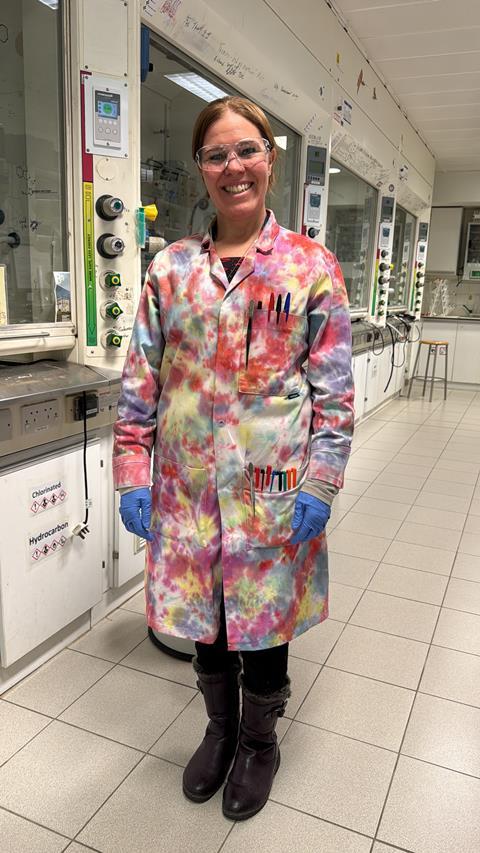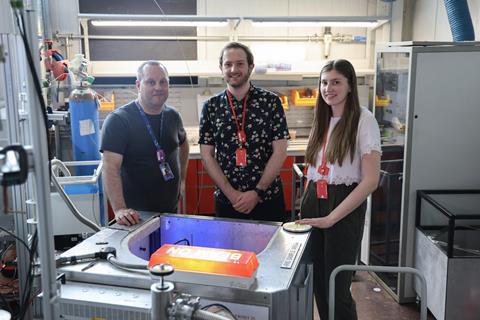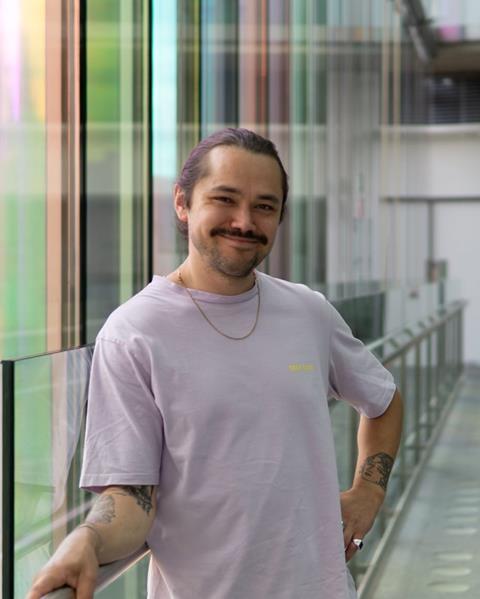The benefits and challenges of returning to academia after a period away
Mature PhD students – a loosely defined term that generally refers to anyone who has taken a break from studying at any point before starting a PhD – make up a noticeable part of the research community. In the UK, 46% of those pursuing a doctoral degree in the 2023/24 academic year were aged over 30, as reported by the Higher Education Statistics Agency. Of the nearly 30,000 students that were pursuing their doctoral studies part-time, approximately 85% were aged over 30.
Choosing to start a PhD is not a decision anyone takes lightly. Yet, for those starting at a later point in life, the decision is often harder. Financial burdens can be particularly challenging for mature PhD students, with many also balancing family life, relearning techniques and concepts or dealing with imposter syndrome, and perhaps feeling out of touch with their younger counterparts.
Despite the difficulties, previous experiences in the workplace or otherwise can help mature PhD students to better manage the responsibilities required by many PhD programmes, such as teaching, supervising students or attending conferences.
Here, several current mature PhD students give their insights into what it’s like starting a PhD later down the line and offer tips on how to follow their examples.
Starting the journey later in life

Born in Zimbabwe and raised in South Africa, Kelly Britton explains that moving away from home to go to university after leaving school was simply not an option. Her local university only taught in Afrikaans; Britton, whose first language is English, ‘couldn’t imagine anything worse than learning organic chemistry’ in her non-native language. An English-speaking university was over an hour’s drive away, which Britton explains was in a then unsafe area of South Africa.
Instead of pursuing the academic route, Britton followed one of her other passions, by running a riding school and stud farm, where she raised and rode horses for several years.
Many careers later, she found herself in the UK with a young family. ‘I suddenly realised that I could do more – I wasn’t really fulfilling my potential,’ she says. A career in teaching appealed to Britton – who previously enjoyed teaching students to ride on the farm – but she realised that she needed a degree to do so formally.
Over the next six years, Britton completed a part-time undergraduate degree in natural sciences with the Open University, where she notes that this is where she ‘really saw chemistry as a subject for the first time’. A final year research project, a part-time job as a lab technician and an internship with Johnson Matthey later, her career ideas swayed from teaching to research.
Britton is now pursuing her doctoral degree with the Centre for Doctoral Training in Inorganic Chemistry for Future Manufacturing, based at the University of Oxford, UK. Her research focuses on supramolecular molecules that mediate catalysis and transport molecules across lipid membranes.
I don’t want anyone to think that they’ve missed the boat
‘Over the years, I’ve done a lot, and I’ve picked up a lot of transferable skills as a result,’ explains Britton. She adds that her past experiences have helped with how she approaches her work in the lab, have allowed her to contribute more readily to the group and have made her more organised.
‘I would not have survived or enjoyed the past four years though if I had not had a such a supportive supervisor,’ says Britton. Her group leader is understanding of her family commitments outside of the lab, which she explains ‘has been invaluable’.
‘It is a bit harder in some ways to do [a PhD later in life]’, she says, adding that she feels as if she’s missed out on some of the experiences unique to students studying at earlier life stages. ‘But I don’t want anyone to think that they’ve missed the boat – it’s entirely possible, no matter when you start.’
Moving back to academia

While some students like Britton complete all of their degrees as a mature student, others decide to change track midway through the qualification journey.
‘As I was finishing my master’s, I had a few different ideas about what I wanted to do next, but I wasn’t sure on which path to take,’ says Matthew Brown, currently a second year PhD student at Cardiff University, UK. He explains that after his studies were disrupted due by the Covid-19 pandemic, he lacked confidence working in the lab and wanted to build up his practical skills.
Over the next few years, Brown worked as a lab technician for a handful of chemical companies, focusing on quality assurance. He felt that ‘a lot of the higher roles were gatekept by the requirement of a PhD,’ limiting his career progression.
Having got the confidence in the lab that he was looking for, Brown knew that a PhD was now right for him, as he ‘still really enjoyed research and [he] wanted to get back into it’. He is now halfway through his doctorate, where his research focuses on developing catalysts for converting carbon dioxide into methanol.
Choosing a project you find interesting is important
‘I often think: “was it worth taking the time out [between my master’s and PhD]?” I think yes. It gave me the skills I needed … and I could implement [these skills] straight away in my PhD,’ says Brown. This included both soft skills, such as time-management and problem solving, as well as specific techniques including gas chromatography and auto-titrations. Having some industrial experience has also given Brown a better understanding of the real-world applications of his research, he says.
Brown is currently weighing up his options for after he completes his PhD, although he feels that a return to an industrial research role is more likely than pursuing a postdoctoral position in what he describes as a competitive market. For anyone else considering a return to academia to bolster their career prospects, Brown says choosing a project you find interesting is important, otherwise it’s not entirely worth it.
Exploring different options

By the end of his undergraduate degree at the University of Otago, New Zealand, Lars Stevens-Cullinane says that he ‘just needed to get away’. ‘New Zealand is a very isolated place,’ he says, and he had ‘been craving going backpacking for so long’.
Stevens-Cullinane worked for a year after his studies as a research assistant before embarking on his travels. He then spent a further two years working in sales and recruitment in Berlin, Germany.
‘Eventually, I’d spent enough time away and I thought “I need to refocus”,’ he says. He moved closer to home, to work in a research lab at the Walter and Eliza Hall Institute in Melbourne, Australia. ‘I felt reinvigorated to follow a career in chemistry and science,’ he says, adding that the next natural option for him was a PhD.
Fast forward a few years, Stevens-Cullinane is now a final year PhD student at the Francis Crick Institute and King’s College London, UK, where his research focuses on developing metal complexes to treat microbial infections.
‘I’m obviously older than the rest of my cohort and they’ve got a sort of head start in their career – but age is just a number,’ he says. ‘I don’t think I would have gotten through a PhD had I gone straight into it.’ He adds that due to his time away from science, he felt a lot of clarity about what he wanted to get out of his PhD and how it fitted into an overall career path, now viewing his PhD more like a job.
But there are drawbacks. ‘I’ve got friends who are now reasonably well progressed into their careers who are earning quite a lot of money,’ he says. ‘Even with the generous stipend that I get, you take a step back for four years, to reset and live off of student wages. You do start comparing yourself to your friends and occasionally come up against [financial barriers].’
We must do a better job of meeting students where they are
Aaron Guest at Arizona State University, in the US, is the chair of the secretariat of the Age-friendly university global network – a collection of higher education institutions that promote healthy and positive aging through education. He believes that more needs to be done to support mature PhD students, by creating an environment that is supportive and accessible to all individuals, through varying learning methods and by breaking down systemic barriers against older learners.
‘The systems in place at many universities are assuming individuals are at a specific place in their lives, which may not carry over to the experience or needs of older learners,’ says Guest. ‘We must do a better job of meeting students where they are, not assuming that they can meet us where we are.’
As Britton, Brown and Stevens-Cullinane highlight, it is more than possible to pursue a PhD at any stage of life. ‘I remember someone in my [previous] department saying that “if you take more than three months out, you’ll never come back to academia”,’ says Stevens-Cullinane. ‘But I don’t necessarily think that’s the case … and I wouldn’t be so scaremongering about it.’
Five tips for mature PhD students
Make the most of your connections
Applying to a PhD outside of an academic environment can be tough, so use all of your resources and connections to make an informed decision. ‘I spoke to someone a few years above me who knew about the CDT that I’m now doing and they thought that it would be a good fit,’ explains Britton.
Draw on your experiences
‘Living in different cultures or work experiences are all going to benefit you in ways that you might not realise,’ says Stevens-Cullinane. Previous experiences may not be directly related to the specifics of your PhD project, but many of the soft skills, such as presenting, effective time management, or working collaboratively with others, will become invaluable. Draw on them wherever possible.
Choose both your supervisor and your project
Like anyone applying to a PhD, Britton recommends speaking to people from the group, being sure to ask specific questions, such as ‘what time are group meetings?’ and ‘how often is the supervisor in the lab?’. These will help you to work out how easy it will be to manage personal responsibilities outside of the lab that may be less flexible as a mature PhD student.
Realise that everyone has imposter syndrome
‘I remember once saying to my cohort “I just don’t understand what’s going on here” but they replied, “neither do we”,’ says Britton. ‘I realised other people have frustrations, it’s not just you, it’s just the experience of doing chemistry.’
There is no wrong time
‘Weigh up your options and just do what’s right for you at that time,’ says Brown. There is no expiry date on completing a PhD, so don’t feel rushed to embark on the PhD journey if it’s not the right time or decision for you.

















No comments yet